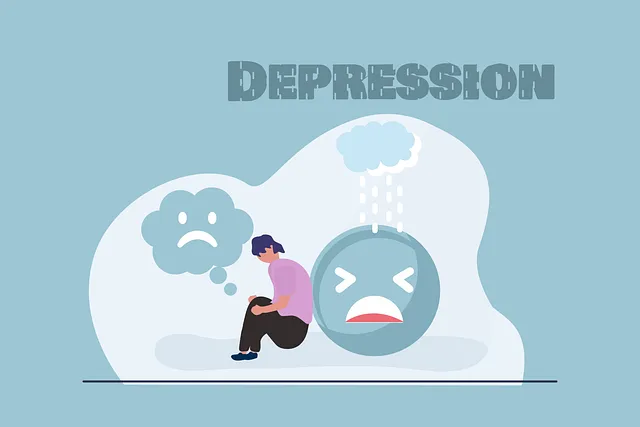The Kaiser Permanente mental health department in Parker offers critical crisis intervention services via its dedicated phone line, using evidence-based strategies and trained professionals to stabilize individuals and support long-term recovery. They promote mental health awareness, provide self-care practices, and offer assessment, safety planning, and post-crisis care tailored to diverse needs. The focus on clear communication, empathy, and cultural competency makes their approach effective and personalized for all.
In today’s fast-paced world, crisis intervention strategies are crucial for navigating emotional storms. This comprehensive guide delves into essential aspects of effective support, focusing on the expertise of the Kaiser Permanente Mental Health Department. Learn how their phone support lines, operational 24/7, play a pivotal role in community well-being. Discover communication strategies, assessment techniques, and safety planning to enhance crisis care. Additionally, explore post-crisis follow-up guidance, drawing insights from the Kaiser Permanente model, accessible via the dedicated phone number in Parker.
- Understanding Crisis Intervention: An Overview
- The Role of the Kaiser Permanente Mental Health Department
- Effective Communication Strategies for Phone Support
- Assessment and Safety Planning Techniques
- Post-Crisis Care and Follow-up Guidance
Understanding Crisis Intervention: An Overview

Crisis intervention is a critical component of mental health support, designed to provide immediate assistance during times of severe distress or impending danger. It involves a structured yet flexible approach to help individuals navigate and overcome seemingly insurmountable challenges. The primary goal is to stabilize the situation, ensure safety, and offer guidance toward long-term recovery.
At the Kaiser Permanente mental health department, phone lines like the Parker location are dedicated to offering crisis intervention services. These hotlines are a vital resource for individuals in emotional turmoil, providing immediate support and connecting them with professionals who can offer tailored strategies. From self-awareness exercises to enhance emotional regulation to promoting self-esteem improvement, these interventions aim to equip individuals with tools to manage future crises effectively. By fostering mental health awareness, crisis intervention can be a life-saving resource, offering hope and guidance during dark times.
The Role of the Kaiser Permanente Mental Health Department

The Kaiser Permanente Mental Health Department plays a pivotal role in providing crisis intervention services, particularly through its dedicated phone line accessible in Parker and other areas served by Kaiser Permanente. This department is equipped to offer immediate support during mental health crises, utilizing evidence-based practices to stabilize individuals and guide them towards long-term recovery. Their expert team comprises trained professionals who are adept at navigating complex emotional healing processes, ensuring that every individual receives tailored assistance.
In addition to crisis intervention, the mental health department contributes to the broader community by advocating for Mental Health Policy Analysis and Advocacy, pushing for systemic changes that promote accessible and comprehensive mental healthcare. They also emphasize Self-Care Practices, empowering individuals with strategies to manage stress and maintain their psychological well-being. This holistic approach not only benefits those in immediate need but also fosters a culture of resilience within the community.
Effective Communication Strategies for Phone Support

When providing phone support as part of crisis intervention strategies, clear and effective communication is paramount. At Kaiser Permanente’s mental health department, professionals are trained to listen actively, ensuring they fully understand the individual’s distress before offering guidance or resources. This involves verbal confirmations and open-ended questions to create a safe space for expression. For instance, confirming the caller’s current emotions and providing opportunities for them to share their experiences can foster trust and encourage vulnerability, which is crucial in a crisis situation.
Remember that the way information is conveyed matters. Using simple language and avoiding jargon helps ensure the caller understands the support being offered. The Parker method, often employed by mental health professionals, emphasizes empathy and non-judgmental attitudes, encouraging callers to feel heard and respected. This approach aligns with the broader Mental Health Policy Analysis and Advocacy goals of promoting understanding and de-stigmatization, which can be a game-changer in encouraging individuals to seek help during times of crisis. Additionally, incorporating Self-Awareness Exercises into the conversation can empower callers by providing them with tools to manage their mental health proactively, enhancing their overall well-being and Mental Health Awareness.
Assessment and Safety Planning Techniques

In crisis intervention, assessment and safety planning are paramount. The first step involves a thorough evaluation of the individual’s situation, including their mental health history, current symptoms, and potential triggers. This process, often guided by professionals like those from the Kaiser Permanente mental health department (phone number: [Parker-specific number to be added]), aims to understand the crisis’ root cause and identify any immediate dangers.
Safety planning is an integral part of this assessment. It involves developing strategies to ensure the individual’s immediate safety and well-being. This can include creating a safe space, establishing emergency contacts, and implementing coping mechanisms such as mental wellness journaling exercises or stress management workshops offered by organizations dedicated to enhancing confidence and overall mental health.
Post-Crisis Care and Follow-up Guidance

Post-crisis care is a vital aspect of crisis intervention, focusing on supporting individuals as they transition from acute distress to long-term recovery. This phase involves providing ongoing mental health services and resources tailored to the unique needs of each person. The Kaiser Permanente mental health department phone number in Parker serves as a crucial resource for those seeking post-crisis support. Here, trained professionals offer specialized care, ensuring that individuals receive the necessary tools and guidance for stress management and burnout prevention.
Follow-up guidance plays a significant role in crisis intervention by helping individuals develop coping strategies and resilience. This process involves regular check-ins, therapy sessions, or support groups to monitor progress, address emerging challenges, and foster a sense of community. By integrating these interventions with Healthcare Provider Cultural Competency Training, care becomes more personalized, effective, and inclusive for diverse populations, ultimately enhancing the overall well-being and recovery outcomes.
In conclusion, effective crisis intervention is a multifaceted approach that combines robust communication strategies, thorough assessment techniques, and comprehensive post-crisis care. The Kaiser Permanente Mental Health Department in Parker plays a vital role in providing phone support, offering guidance on safety planning, and ensuring ongoing care for individuals facing crises. By leveraging these strategies, we can enhance our ability to navigate challenging situations and foster healing and resilience. Remember that access to the Kaiser Permanente mental health department phone number in Parker is readily available for those in need of immediate assistance.






